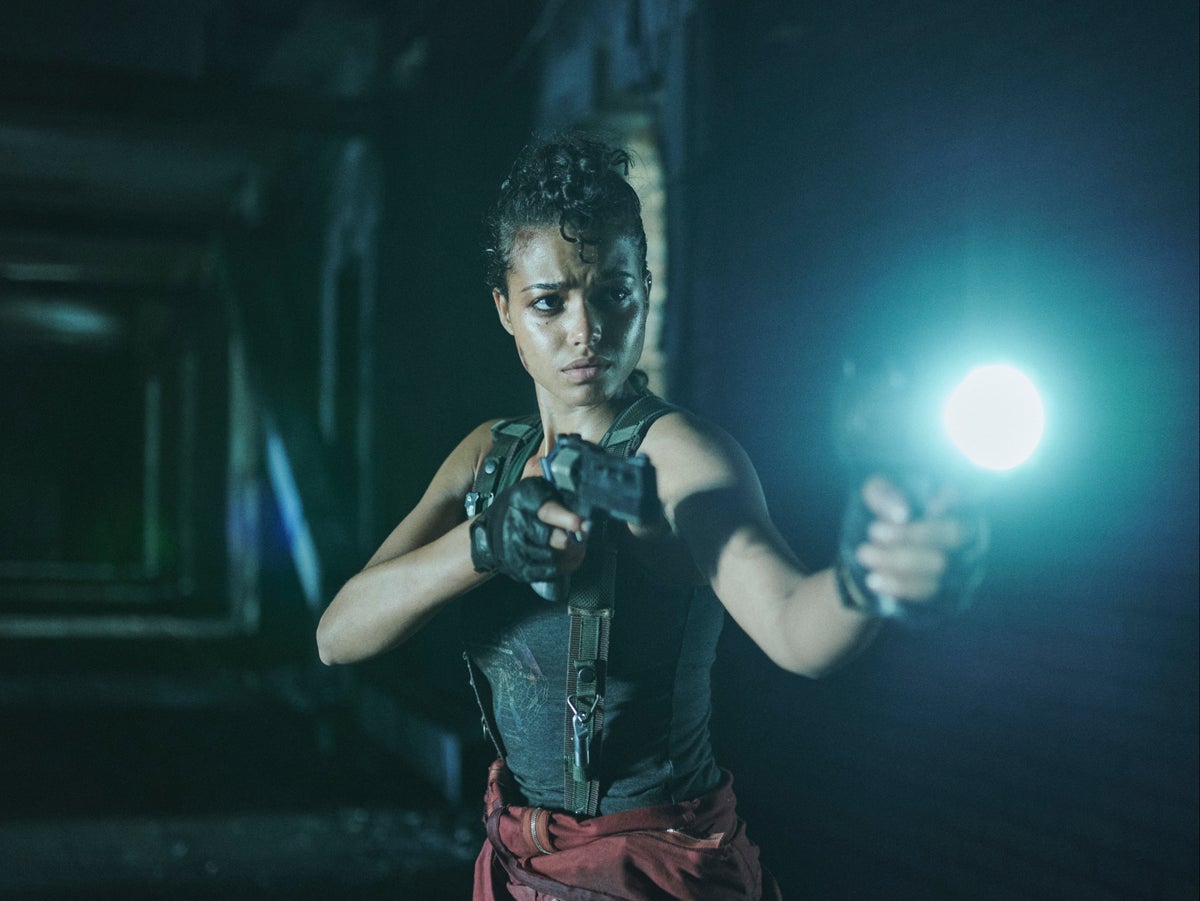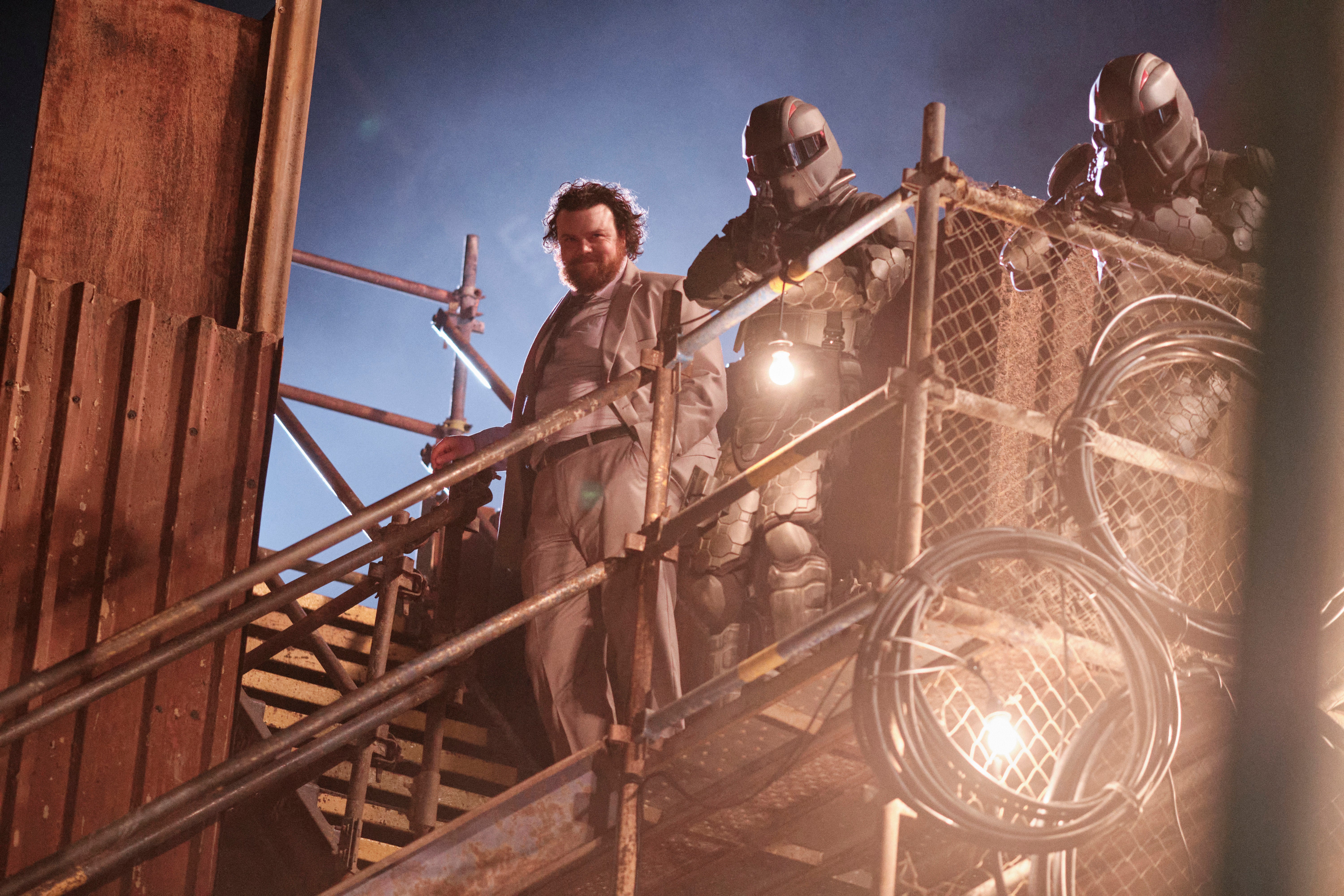
Back in 1996, while newspaper coverage was fixated on the divorce of Prince Charles and Princess Diana, a phenomenon was spreading around the world, not unlike a virus. Osaka-based video game developer Capcom had just released Resident Evil, a shoot-’em-up in which players enjoyed the brainless fun of blasting the brains out of the brain-eating undead. Almost three decades later, and the brainiacs (OK, I’ll stop now) at Netflix have brought the franchise back from the dead for an eight-episode run, its first live-action small screen iteration following a seven-film cinematic universe that, despite blanket critical panning, has never been killed off.
At the heart of this new version of Resident Evil (the character through whose eyes the story would unfold, were this a first-person video game) is Jade, played by Charlie’s Angels Ella Balinska. She’s a tough, undercut-sporting scientist-cum-action hero, in the mould of Resident Evil heroines before her. The twist here is that her father is Albert Wesker (the Big Bad of the games) played with typically sonorous authority by The Wire’s Lance Reddick. Two timelines unfold: the “present” day, where Jade, a research scientist, monitors zombies on the streets of London (“Come on, show me something,” she whispers at a rabbit she’s placed before the horde), and 2022, when she was a child living with her father and sister in New Raccoon City. This thread, it soon emerges, chronicles the genesis of the virus that will imminently reduce humanity to a mass of slobbering flesh munchers.
The backstory quickly becomes a cautionary tale of corporate greed and the exploitation of the wellness fad (after Severance it seems everyone wants a slice of dystopian workplace culture), while, ahead in 2036, Jade finds herself on the run, pursued by both the undead (“The T-virus doesn’t kill people, it rewires their brains,” Jade observes. “All they want to do is eat and spread the virus”) and the shadowy Umbrella Corporation, her father’s employer. The zombies themselves – and let’s face it, a Resident Evil adaptation is only as good as its ravenous swarm – look like a flash mob of A-level drama students, until they start running, at which point the frenetic action sequences are lit more sparingly than a medieval boudoir.
Perhaps the makers of this show felt that escaping the video game aesthetic was enough. And for some it will be: in the Wesker origin story and the skull-crunching violence, there’s something to appeal to devotees of the landmark franchise. But for those unfamiliar with the fabled video game series, this will feel like little more than a muddled, and somewhat tacky, zombie serial, saddled with the baggage of pre-existing lore. The video games were a monster hit, but there’s not enough meat on the bones of this rework for anyone but hardcore completists.

The whole thing is shonky. The writing, by necessity, is largely expository and clichéd (“Scientists said the world would end in 2036,” Jade’s opening monologue announces. “But they were wrong: the world ended a long time ago”), though they also find room for some weird asides, courtesy, mainly, of Paola Nunez’s very evil Evelyn Marcus. She says things like, “Who hasn’t popped a Xany and gone hunting for Louboutins?”, before snipping the head of a rat with a pair of scissors, in case you were in any doubt that she’s a wrong’un. The visuals, meanwhile, range from a Black Mirror-lite techscape to an abandoned world built on cheap sets and half-baked CGI. The production design invites comparisons with both 28 Days Later and Children of Men; comparisons that look increasingly unflattering as the show reverts back to its relentless gameplay origins.






